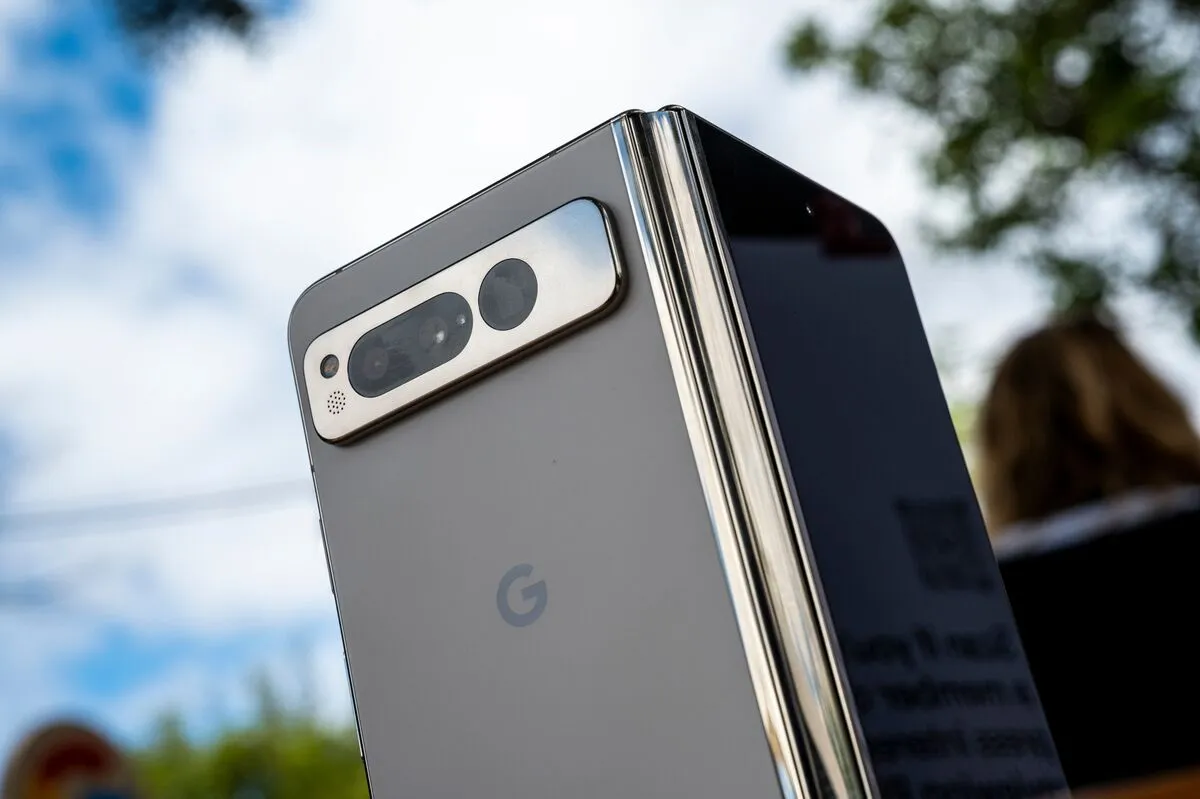Alphabet Inc.’s Google Pixel is eroding the iPhone’s dominance in Japan as the Apple Inc. device gets pricier, finding success after years of misfires.
Google phones accounted for a record 12% share in the Asian country in the June quarter, six times what it was a year ago, according to Counterpoint Research data. During the same period, the iPhone’s market share slumped by almost as much: to 46% from 58% a year earlier.
Japan is a key arena for the two Silicon Valley firms, as the world’s third biggest economy and a huge market for mobile software and games. The iPhone has been as dominant there as at home in the US, and its decline this summer was the first time it commanded less than half the Japanese market in two years.
The plunging value of the yen pushed Apple to raise iPhone prices in Japan earlier than its recent global price hikes, and the cost of the device is proving a noticeable deterrent, at a time when the latest handsets have not offered must-have new features.
“Japanese users are becoming more pragmatic,” Tom Kang, a Seoul-based analyst for Counterpoint, said in an interview. “There’s now more opportunity for alternatives. We’ve seen a little bit of growth in Sony and a little bit of growth in some other brands, but the growth of Google was most surprising.”
iPhone Gives Way to Pixel Apple’s share in Japan drops below 50% for the first time in two years
Source: Counterpoint Research
The yen’s weakness has also helped juice the Pixel’s sales: it makes the phone a bargain for consumers outside of Japan who want to buy the phone. The Pixel is offered in a limited number of countries and the yen’s slide toward its lowest level in more than three decades has made Japan the cheapest place to purchase the device.
“Japan is becoming the trans-shipment hub for Google Pixel devices,” said Kang. “So the iPhone is suffering from a weak yen and Google is benefiting from it.”
With the yen playing a decisive role in who gets a bigger share from one of the world’s largest smartphone markets, there’s an open question around whether the trend will last. But a growing price sensitivity appears likely to weigh on iPhone sales in Japan for the foreseeable future. The major mobile carriers have cut back subsidies enticing customers to sign up for lengthy contracts, and many have instead turned to buying devices through independent channels.
“Japan is a huge success story for Google and the Pixel team,” said Anshel Sag, principal mobile analyst at Moor Insights & Strategy. “It appears that most of these devices are from the budget Pixel 6a and 7a series, which would likely mean that Google has successfully captured the middle of the Japanese smartphone market.”
The sales drop in Japan highlights the challenges ahead for Apple. The company posted its third straight quarter of declining sales and predicted a similar performance in the current period, hurt by an industrywide slump that has sapped demand for phones.
The release of Apple’s latest iPhone 15 series may give its market share a bump, though the starting price of the iPhone 15 Pro Max was raised by $100 this year after eliminating a smaller storage tier offered in past years. Google is set to launch its latest Pixel device generation at an event on Oct. 4.
“Price is becoming an important factor,” Kang said. “Loyalty for Apple and iOS is much higher than Android, I’d say. But Android devices always have the price advantage.”
— With assistance by Takashi Mochizuki



@fell @Sentientted It does once you set it up. You have to do some device certification stuff to get access to Google Play, but once that is done it just works.
I’ve used it for Apple Music which works pretty well. It’s just that Apple Music on Android is… not great. But whatever app you need, as long as it has an x86 compiled version, it should work.